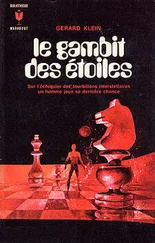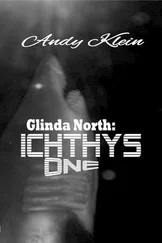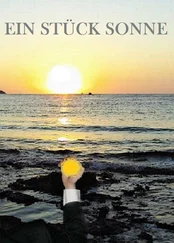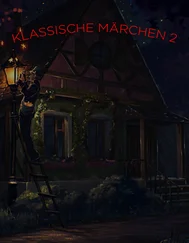Lee Klein - Jrzdvlz
Здесь есть возможность читать онлайн «Lee Klein - Jrzdvlz» весь текст электронной книги совершенно бесплатно (целиком полную версию без сокращений). В некоторых случаях можно слушать аудио, скачать через торрент в формате fb2 и присутствует краткое содержание. Город: Montclair, Год выпуска: 2017, ISBN: 2017, Издательство: Sagging Meniscus Press, Жанр: prose_magic, на английском языке. Описание произведения, (предисловие) а так же отзывы посетителей доступны на портале библиотеки ЛибКат.
- Название:Jrzdvlz
- Автор:
- Издательство:Sagging Meniscus Press
- Жанр:
- Год:2017
- Город:Montclair
- ISBN:978-1-944697-32-7
- Рейтинг книги:3 / 5. Голосов: 1
-
Избранное:Добавить в избранное
- Отзывы:
-
Ваша оценка:
- 60
- 1
- 2
- 3
- 4
- 5
Jrzdvlz: краткое содержание, описание и аннотация
Предлагаем к чтению аннотацию, описание, краткое содержание или предисловие (зависит от того, что написал сам автор книги «Jrzdvlz»). Если вы не нашли необходимую информацию о книге — напишите в комментариях, мы постараемся отыскать её.
Jrzdvlz — читать онлайн бесплатно полную книгу (весь текст) целиком
Ниже представлен текст книги, разбитый по страницам. Система сохранения места последней прочитанной страницы, позволяет с удобством читать онлайн бесплатно книгу «Jrzdvlz», без необходимости каждый раз заново искать на чём Вы остановились. Поставьте закладку, и сможете в любой момент перейти на страницу, на которой закончили чтение.
Интервал:
Закладка:
She had almost blended into the crowd. She had watched as the girls tied to weighted oak were introduced into the river, dragged across its soft, inky, withdrawing flesh. Her father had said he was the Leeds Devil, but the Leeds Devil in human form was a disappearing act, something almost like death, out of sight, with no hope for return. Yet if she looked up she may have seen a shadow move across the uppermost branches of the trees, a presence if not quite her protector.
December would not struggle or run but give herself up as though happy to relinquish doubts of the last hundred days in favor of the certainty of no future, or at best transform beneath the river into tadpole, algae, water spider across the surface consumed soon enough by trout or crane. She preferred this fate to a future around those she’d orbited but could never live among without violent impact. She was a comet. Beneath the Mullica she would be celestial.
I restrained an urge to give into basest desire and punish humanity. Everything I learned of them convinced me of my rightful inclusion.
It was then, as speeches soared and weights were attached to a beam of oak that would transport December into the Mullica, they saw him. The sight must have rivaled the natives’ first glimpse of conquistadors on the backs of stallions, for if anyone had ever appeared from some distant land, inherently superior with a powerful obsidian horse beneath him, if anyone could sit as upright and as natural as though the beast were an extension of his body, it was this man. He was accompanied by two others, fat and thin, the voices of contrary advice and attitude most likely on which the great visitor depended, both atop gray fillies that seemed more like ponies next to the central man’s steed. Behind them, teens followed on knock-kneed quarter horses, though the effect was of an undefeatable army. The crowd parted to where December lay on the bank of the river, bound, silent, ready for sacrifice.
The crowd gave way without struggle thanks to the extreme vitality of the arrival’s steed. Proud across the chest and neck and hindquarters, it was the apotheosis of horse, so much so it edged into other orders of animal: lion, panther, god. The animal seemed to absorb all possible goodness into its hide and project it outward. That a man rode this horse was remarkable. The sight mesmerized them in their weakened state, like news from the world indicating how far Umbria had fallen. December’s salvation was more dramatic than escape into skies. The man on the horse seemed drawn to the scene like a conquistador to some lost city of gold. He offered to buy everyone’s land. All accepted, wide open now to the prospect of change. And so the paradise they sought was attained, in a way, and Umbria’s ruins surrendered to the woods and fire and time.
The Dream of Pure Water
 EXTILE MILLS, iron works, paperies, tanneries, hundreds of thousands of citizens spewed filth into rivers. All tributaries became open sewers, all water impure, all life endangered. Pestilence and stench mixed with the rattle of plodding mortuary wagons through brick and cobbled streets. In elegiac gridlock, funeral processions en route to burial grounds stalled at intersections. The port received cargo from the tropics conveying mosquitoes, insignificant as eyelashes, thirsty for human blood, carrying yellow fever. Those in the know covered their mouths. Those with sense left the city, draining a population weakened by death and disease. Immigrants filled occupancies and contributed to urban atherosclerosis as unregulated industrial waste mucked the rivers. The city had risen like a wart, a lump, a tumor. No Mid-Atlantic winter of sleet would ever heal it. Outbreaks of typhoid and cholera challenged mortality records set by yellow fever. No mosquitoes this time, just mess, and those responsible for public good were leaders of private industry who entered the city from pastoral retreats, repeating the word purity. Fresh or filtered, pure water must be served, somehow, before the streets of this long-thriving site turned viscous with waste.
EXTILE MILLS, iron works, paperies, tanneries, hundreds of thousands of citizens spewed filth into rivers. All tributaries became open sewers, all water impure, all life endangered. Pestilence and stench mixed with the rattle of plodding mortuary wagons through brick and cobbled streets. In elegiac gridlock, funeral processions en route to burial grounds stalled at intersections. The port received cargo from the tropics conveying mosquitoes, insignificant as eyelashes, thirsty for human blood, carrying yellow fever. Those in the know covered their mouths. Those with sense left the city, draining a population weakened by death and disease. Immigrants filled occupancies and contributed to urban atherosclerosis as unregulated industrial waste mucked the rivers. The city had risen like a wart, a lump, a tumor. No Mid-Atlantic winter of sleet would ever heal it. Outbreaks of typhoid and cholera challenged mortality records set by yellow fever. No mosquitoes this time, just mess, and those responsible for public good were leaders of private industry who entered the city from pastoral retreats, repeating the word purity. Fresh or filtered, pure water must be served, somehow, before the streets of this long-thriving site turned viscous with waste.
Purity, the word itself, when Wharton said it he saw a pane of glass and tasted cold brilliance through the translucent spike of an icicle, a representative apparition, a model of civilization. But he wasn’t prone to abstraction. His mind revolved around enterprise, speculation, investment, private energies unleashed to spur public good. Quaker roots, ascetic tastes, spiritual parents, but unlike to the north, no Puritan ethic dissuaded entrepreneurs from applying energies to large-scale industry. First bricks, then zinc, then nickel, then iron, Wharton advanced fortunes his parents’ families had won in shipping, and his nickel was used to make the country’s coins—all very good, except for the stench, pestilence, and contaminated streams that jarred his sense of order.
Filth-teeming veins. Unregulated chaos. Only private hands, Wharton believed, could mold public lands. His plan for renewal was simple: invest in cranberries.
East of Philadelphia some dozens of miles, between the Delaware River and Atlantic Ocean, most of the land was covered in pines, a region aptly named the Pine Barrens. It was hardly deserted or stripped of resources but instead offered sanctuary from sullying forces that came from the encroachment of people and their work. Iron works there failed as industry moved to richer sources to the west, and the trees were used for charcoal and cedar and wreaths and cones and holly come Christmas. Over time, bogs and marshes and otherwise dry terrain proved suitable for cranberries. Acres of pine were cleared and the sand sculpted into furrowed rows for the primary agricultural product of the state’s southern counties. Wharton had a hand in it, too, of course, having sold his interest in sugar beet farms to purchase as much of the so-called Pine Barrens as he could. Something about the stark territory between western river and eastern ocean attracted him—quick access to the shore and travel by sea to New York or Baltimore and beyond—but mainly it was those waxy red jewels, and soon after he discovered a far more valuable resource.
It is unfathomable, he wrote, that such land can draw one to it with something as innocent as these berries and soon after reveal the savior of one’s home city’s ills. Purity is there, unadulterated innocence in the waters, all concealed by spiky landscape common men might deem a waste, not understanding potential so often beneath unpleasant surfaces.
Wharton purchased an estate ruined by fire. The land had once been used for a pulp mill after a failed attempt at a bog-iron works, later it was transformed into a resort that had also failed before an eccentric lawyer spent the last years of his life on it accompanied, it was said, by someone in a white wedding dress who curious observers had seen on the grounds. The house was consumed by wildfire that regularly wasted the pines, the body of the old eccentric was found in the ashes, but no trace of the woman or her dress. Rumor became legend and merged with tales of the Leeds Devil who conveyed escaped slaves by cover of night, carrying them in its claws or entwined in its long tail, flying at great speed a hundred miles north, an underground railroad high above and out of sight. Yet no rumors circulated among the freed of a beast offering extraordinary air travel.
On Wharton’s land near the Mullica River, these stories seemed like innocent entertainment. At best, the legends might scare all those interested in taking advantage of resources that existed not as obscure speculation but as fact beneath the pineland’s surface. Those legends weren’t as troubling, in any case, as what he had encountered when he first arrived in Umbria. And he couldn’t see how legends affected the capability of a freshwater aquifer to relieve the stench and fever, the sickness and sorrow, and the general misery of an uncertain future for Philadelphia.
Читать дальшеИнтервал:
Закладка:
Похожие книги на «Jrzdvlz»
Представляем Вашему вниманию похожие книги на «Jrzdvlz» списком для выбора. Мы отобрали схожую по названию и смыслу литературу в надежде предоставить читателям больше вариантов отыскать новые, интересные, ещё непрочитанные произведения.
Обсуждение, отзывы о книге «Jrzdvlz» и просто собственные мнения читателей. Оставьте ваши комментарии, напишите, что Вы думаете о произведении, его смысле или главных героях. Укажите что конкретно понравилось, а что нет, и почему Вы так считаете.












